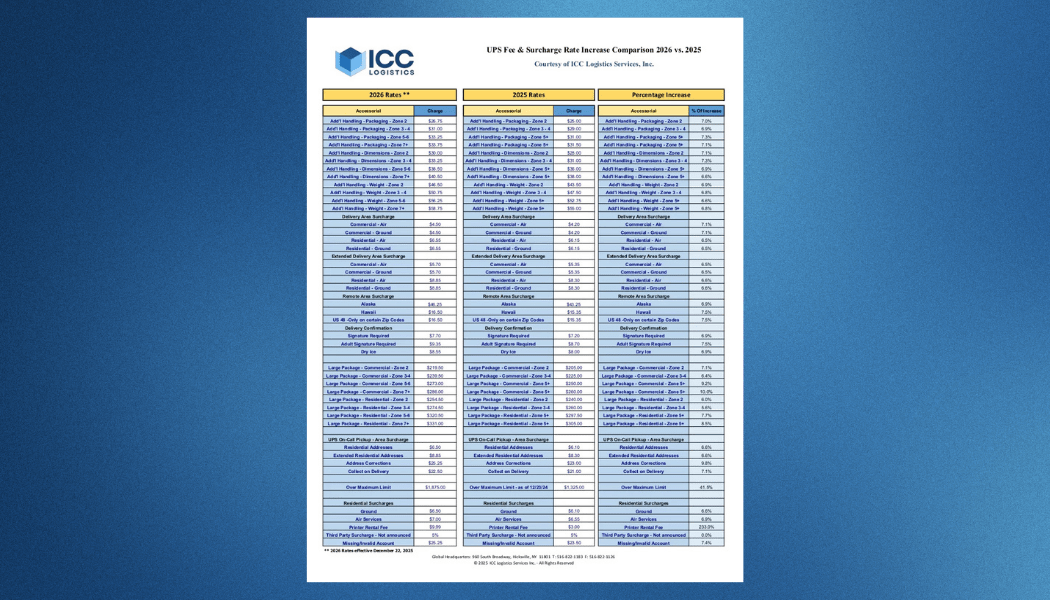Creating transportation contracts that meet the needs of both shippers and transportation service providers equally often times is a complex process. The main reason for the complexity is the fact that in many cases one party is obviously seeking to gain a distinct competitive advantage over the other party. As we have stated in numerous articles in the past on this subject, trying to take advantage of a strategic business partner within a contract arrangement structure is something to be avoided at all cost.
First of all, the main reason for entering into a contract agreement is to provide specific details of the services to be provided and the costs to be paid for those services. Therefore, if the service provider has been properly vetted, meaning they can in fact provide the services spelled out in the contract agreement, then the shipper has accomplished its first goal, selecting the right service provider for their needs. What other advantage could they possibly be looking for? Oh yeah, a much lower rate!
Well, if that’s the case then the shipper has not done a good job vetting the service provider. Are there other carriers that can provide the same level of service at lower costs? If so, the shipper should enter into a contract agreement with the service provider who agrees to provide the same level of service at a lower cost. On the other side of the coin, once the service provider has been properly vetted and selected, then the shipper must make a commitment to pay the fees outlined in the contract for the services provided. It really is that simple!
Remember entering into contracts MUST benefit both parties EQUALLY! The main reason for entering into these written agreements is so there is in fact a true meeting of the minds as to what services are to be provided and what fees are to be paid for those services. Contracts are also bi-lateral agreements and therefore both sides must agree to making any changes; changes cannot be made unilaterally by one party or the other. And, finally both parties should ensure what we call “possibility of performance” meaning that both parties can meet their contractual obligations before entering into such agreements.
So now that you have a better understanding of the benefits of contracting for services, we’d like to share some additional points on how to create what we call a “Robust” Contracting Process! To ensure that all of your contract agreements are “Robust” contractual agreements you must ensure they meet the following principles.
- Results Oriented: Both sides must ensure that the contract produces the results BOTH sides intended it to produce. This is a fundamental goal of contracting to make sure there is always a “meeting of the minds.”
- Optimizes Resources: The contract should provide assurances to both parties that it makes the best possible use of resources of both parties in the contract agreement. It must also ensure that one of the parties is not being overly burdened or marginalized by the contract terms and conditions.
- Balanced: All inputs, outputs and costs are appropriate for the intended result. Simply put, is the service worth the fees being assessed? Are the fees sufficient to properly compensate the service provider for the services it is providing?
- User Friendly: Is the contract language structured properly so that both sides clearly understand their obligations set out in the contract agreement?
- Simple: Are the obligations of both parties clearly spelled out in the agreement so that there are no misconceptions, or assumptions on either side? Is the contract easy to understand to ensure that both sides are guaranteed to meet their contractual obligations?
- Trackable: Are there specific provisions in the agreement for quantifying results and monitoring the success of the agreement? Both sides must feel comfortable that all provisions in the agreement are properly monitored and that both sides agree to the tracking and reporting metrics?
And one final thought. If you are a shipper and have a “contract” with your transportation and logistics service provider and that service provider maintains the ability to unilaterally change the rates and/or any other provisions of the agreement without your consent, you DO NOT have a contract, you merely have a pricing agreement. Pricing agreements are not necessarily a bad thing. But, if you’re looking to control your rates and services from constantly being changed without your approval, you need to speak with your attorney about setting up contracts with your service providers.



 to receive our FREE white papers:
to receive our FREE white papers: